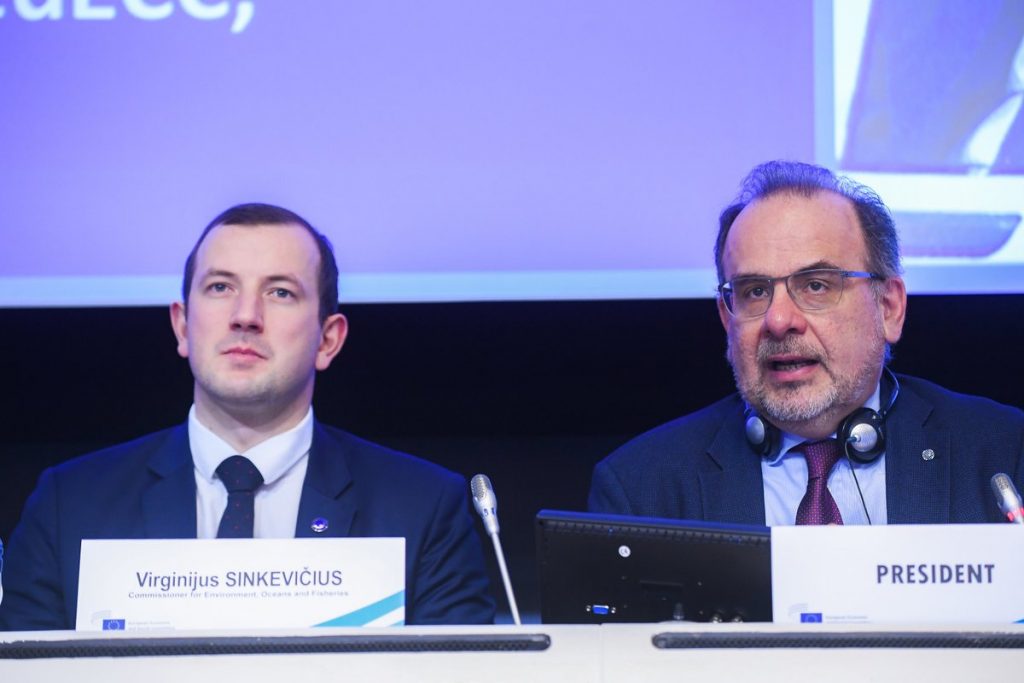
Brussels , 23/01/2020 EESC Plenary session 549 european economic and social committee Pix : Credit : Mathieu Golinvaux / Isopix
The fight against climate change was high on the agenda of the January plenary session of the European Economic and Social Committee (EESC), which hosted a debate on COP25 and the European Green Deal.
Urgent measures need to be taken to make climate protection and sustainable development happen, and the European Union must take the lead. At the debate held in Brussels on 23 January 2020, EESC president Luca Jahier was sharp in his words: We are at a critical time. Unfortunately, the world is not on track to achieve the objectives of the Paris Agreement on climate change and SDG targets and this could have devastating implications for all of us, he said.
The EESC president added that the transition to a sustainable, carbon-neutral and resource-efficient economy required fundamental changes in our society and in our economy, underlining that the EU had to deliver on two levels, on one side implementing the 2030 Agenda itself and on the other promoting it in the world. As the EESC, we are convinced that the implementation of the 2030 Agenda must be the EU’s top priority for the next decade. Europe must be the frontrunner, the global leader on climate! he continued.
Semia Cherif, the Coordinating Lead Author of the “Drivers” chapter of the 1st Mediterranean Assessment Report (MAR1) elaborated by the MedECC, advocated for a long-term vision and approach based on an awareness of pollution even when it was not immediately visible, as in the case of tiny emerging pollutants.
Mr Jahier concluded by highlighting the importance for the EU institutions of joining forces in order to deliver the European Green Deal agenda in a timely manner. This would not be enough though, without a coordinated and consistent effort and support from all civil society actors.
Watch the online transmission (the intervention of Semia Cherif starts at 42 min.)

